Political fandoms are very influential in modern-day Korean politics. Recently, a Member of Parliament (MP) Lee Jae-myung received strong support from his fandom and was elected party leader at the August 28th Democratic Party convention. Thus, the Sungkyun Times (SKT) will examine the concept and history of political fandoms, controversies surrounding political fandoms, and finally suggest possible directions political fandoms should head toward for a more constructive political culture.
What Are Political Fandoms?
The Definition and History of Political Fandoms
The term “fandom” is used to describe communities built around a common interest, usually that of popular culture. These include books, musical artists, and actors. As a fandom’s actions are often associated with their subject of interest, there are certain social norms within the community, including rules and traditions. Supporters of a particular politician can also form what is called a “political fandom.” Political fandoms show their support by coordinating individuals and publicly endorsing the acts of a politician. Political fandoms are also the backbone of a politician’s supporters; they are much like celebrity fandoms in that both treat the individual’s image as material for cultural consumption. For example, political fandoms produce merchandise branded with the politician and have regular offline meetups, differentiating fandoms from passive supporters. The first political fandom of this kind was formed in 2000 by fans of politician Roh Moohyun. This fandom, “Lovers of Roh Moo-hyun,” served an essential role during Roh’s presidential elections through organized promotional efforts. Since then, the number of political fandoms has increased substantially all over Korea. Fandoms and politicians now interact regularly through events such as fan meetings.
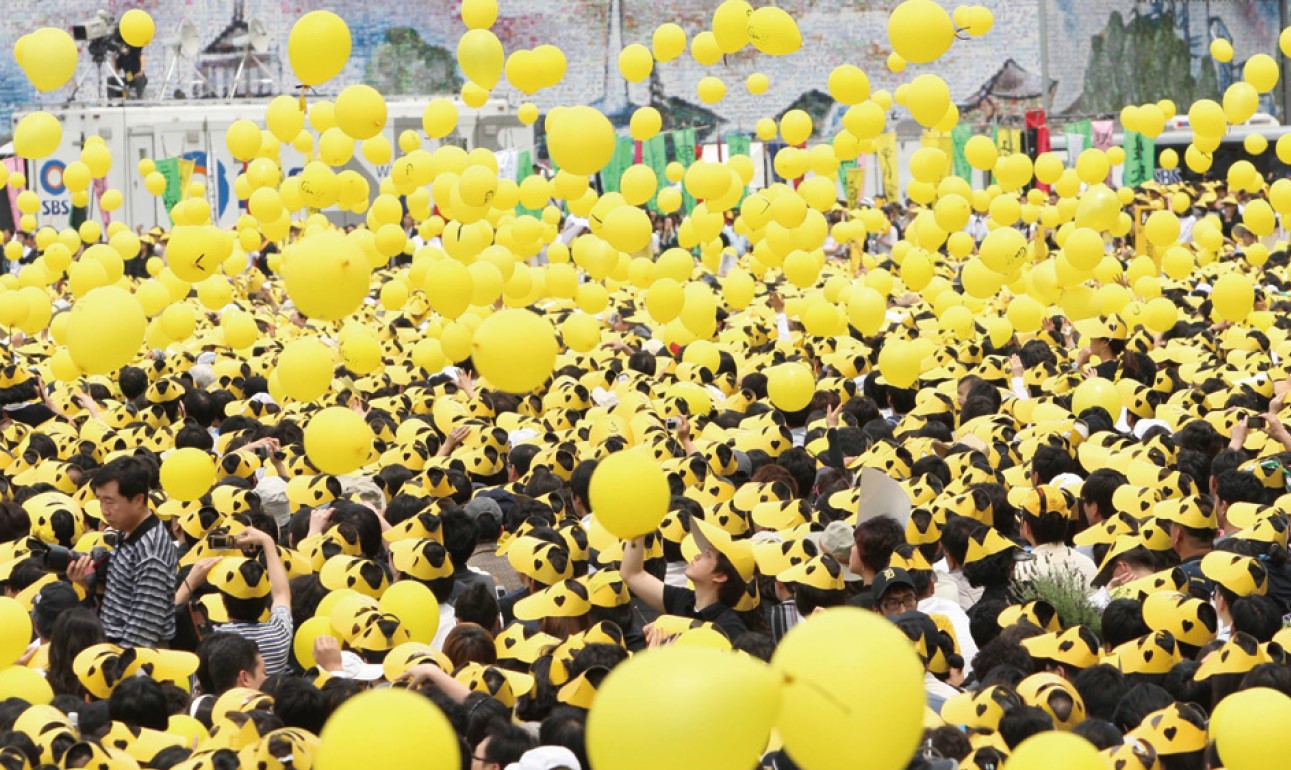
Political Fandoms in the Present Day
Nowadays, political fandoms are one of the easiest ways through which a person can access the complicated and bureaucratic nature of Korean politics; they act as a sort of bridge between the public and politics. Political fandoms are often formed around online communities such as Naver or Daum cafés and utilize Twitter and YouTube if needed. The size of fandoms ranges from tens to hundreds of thousands, depending on the popularity of the politician. Larger fandoms have an influence on not only the politician but also politics itself. For example, the fandom of Democratic Party leader Lee Jae-myung is centered around the Naver café “Jae-myung’s Town,” which has over 200,000 members. Such massive fandoms tend to sway public opinion or even the politician themself to please the community’s objectives. With the influence of political fandoms growing, there has been an active debate regarding the pros and cons of fandom culture in politics.
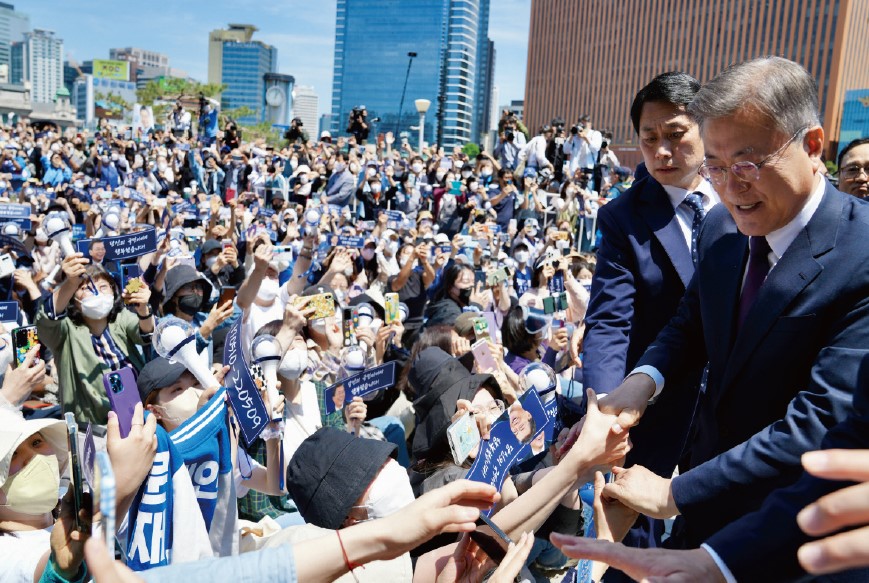
Political Fandoms: Their Advantages and Weaknesses
The Positive Side of Political Fandoms
1. Boosting Political Participation
Political fandoms can positively impact voter turnout, especially among those who previously showed little to no interest in politics. For example, the fandom of former People Power Party leader Lee Jun-seok actively utilized public opinion through internet communities to stimulate political participation. His fandom, primarily consisting of men in their 20s and early 30s, advertised Lee Jun-seok through online communities. Lee’s young and anti-feminist image struck a chord with the interest of male-dominant community users. Thus, Lee’s fandom managed to win over their votes, who had reservations about the previous Moon Jae-in administration at the time. This, in turn, contributed to Yoon Suk-yeol’s victory in the recent presidential elections. In addition, political fandoms form strong ties between supporters and fans alike, which creates a synergy effect in the form of organized promotion and practical support. Cho Won-bin, a Professor of Political Science and Diplomacy at Sungkyunkwan University (SKKU), remarked, “The voluntary nature of political fandoms is possible due to the relatively higher political efficacy compared to other types of political activities.” He added, “Political efficacy then leads to one’s political contribution, which in turn leads to citizens proceeding from a consumer of politics to a participant in politics.”
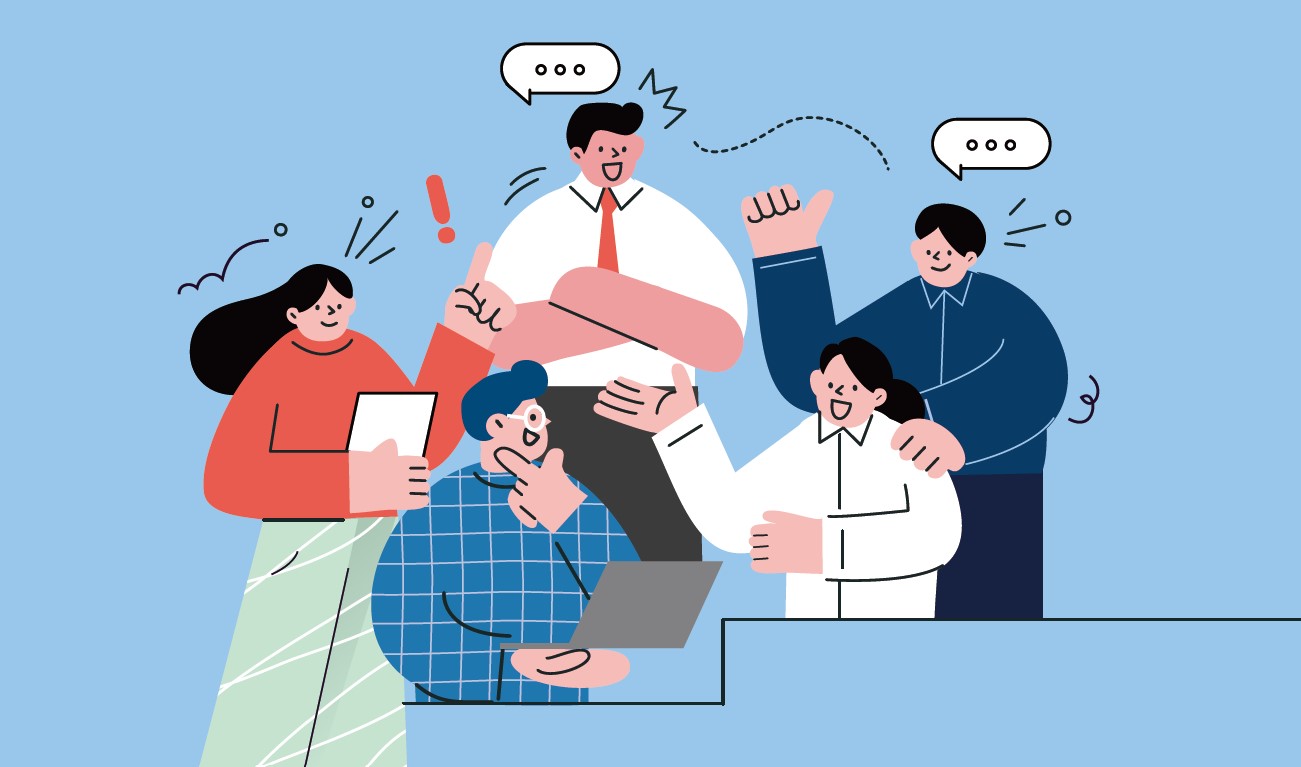
2. Departing from Bureaucracy
Political fandoms differ from the established political structure in many aspects, which means that fandoms can partially avoid bureaucratic structures. Due to the stubborn nature of Korean politics, it is difficult for an everyday individual to easily participate. It is even more so for local politics, which is a stepping stone into national politics, as they center around the understanding between local politicians, party workers, and local influencers. However, political fandoms are free from such established structures and have more fluidity, as their only aim is to show support for a sole politician. Through political fandoms, citizens can directly pass on their needs to the politician and participate politically without being restricted by the bureaucracy of politics. Moreover, political fandoms could be a new alternative source for recruiting party workers and politicians’ aides. Some members of political fandoms run for office and even get elected. Through this alternative route of political recruitment, political parties can prevent the organization from bureaucracy and falling back on time. Meanwhile, membership in a political fandom is voluntary and thus valued. Although participation is also voluntary in traditional politics, the common use of peer pressure as a political mobilization often discourages and causes people to lose interest. This voluntary nature ensures that it is better organized than the traditional political structures when taking action. Political fandoms hold much potential, being free from the rigid traditional political structure.
The Negative Side of Political Fandoms
1. Political Anomalies
Political fandoms often attempt to exclude those who are critical of the fandom’s politician and those who disagree with the fandom’s agenda. They even call skeptics out as “spies” with no evidence. For example, MP Park Yong-jin, who competed against MP Lee Jae-myung in the Democratic Party convention, suffered an attack by Lee Jae-myung’s fandom after publicly criticizing him. Similarly, political fandoms participate in smear campaigns against politicians who do not fall in line with the fandom’s favor. Smear campaigns are dangerous as they can instigate conflict, accelerate polarization, or even cause the party to break in two. Contrary to such behavior, political fandoms are often too lenient on the politician they support. Political fandoms overly justify the wrongdoings of politicians, which prohibits objective reflection on the politician’s actions. An example of this would be former Seoul City Mayor Park Won-soon’s sexual harassment case in July 2020. Some of Park Won-soon’s fans accused the victim of being a “supposed victim,” thus inflicting secondary verbal assault. This action by the fandom was heavily criticized by the public. These shortcomings, such as blind support, a demonization of critics, and overly justified lenience, show the anomalies that exist within political fandoms.
2. The Adverse Effect from Overaction
Political fandoms frequently neglect the spread of fake news within the fandom or even accelerate it by refusing to fact-check. At times, they even produce malicious and incriminating information. Such behavior can cause severe confirmation bias within the fandom, in which fans trust information without checking whether it is true. This is especially true within political fandoms as information shared within the fandom is trusted without further questioning. For example, the unconfirmed claim by former MP Min Kyung-wook that the 2020 general election was rigged was absorbed by his fandom without question, which in turn led to protests and lawsuits. Meanwhile, some members of fandoms resort to verbal and physical violence, even committing crimes against critics. Such violence is carried out not only by certain violent members but sometimes even as a group. For instance, avid supporters of President Yoon Suk-yeol were criticized in February 2022 after they committed violent crimes against protestors and critics of Yoon. Such violence from the fandom does not serve well for the politician either. The fandom’s violent nature or its tendency to spread fake news negatively affects the politician’s reputation and gives the public an indication that the politician neglects or even advocates violence.
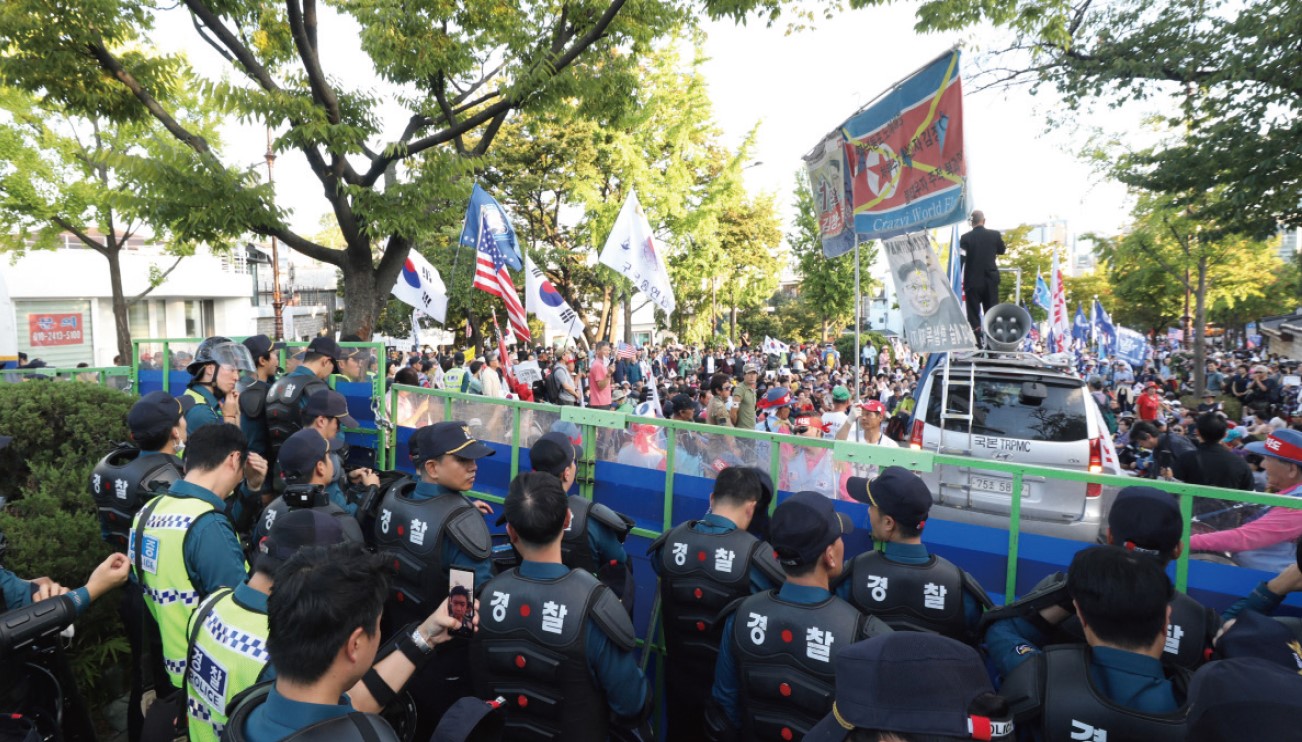
The Way Forward with Political Fandoms
Instituting Rules and Regulations within Fandoms
Political fandoms should first advocate respect among the community and start accepting critics as constructive opinions within the fandom. Such a change in the atmosphere will stop the wastage of valuable political resources and help the community focus on actual policymaking rather than malicious rumors. On the other hand, fandoms must strictly penalize extremist members. The online community centered around politician Lee Jun-seok is a prime example. The community has codified and written down a rule regarding hate speech: perpetrators are banned from the community for 30 days. Members must contain extremist members within the fandom – any distortion of the fandom’s objectives and a spread of violence should be prevented. Furthermore, if the politician is accused of a crime, the fandom must try to remain as impartial as possible and not give in to the opinions of overly lenient members. Overly protective behavior towards the politician may lead to secondary assault. Lee Ho, head of the organization at the Democratic Party National University Students’ Committee, commented, “Fandoms must not get too caught up in their influence and must work towards leaving a positive impact on the politician and party.” He also explained that they must “justify their existence as a sovereign action of citizens, mostly through active participation in the party.”
How Non-members Should Treat Fandoms
Politicians must impose penalties and introduce stricter measures against members who resort to violence or make hateful comments. For example, in March 2022, when a supporter of Lee Jae-myung attacked the Democratic Party leader Song Young-gil, Lee directly condemned the action as unacceptable. As neglecting violence may lead to public perception that the politician promotes violence, the politician must make the bold decision to distance themselves from such violent members. On the other hand, individuals must be cautious when approaching political fandoms. Ahn Hyo-joon, vice-chairman at the Democratic Party Seoul University Students’ Committee, said, “We do not need to become monsters ourselves to fight off other monsters,” suggesting that “we should react to extreme political fandoms with class.” He also emphasized the need for “continuous complaints of verbal violence” to a higher authority, such as the party. Similarly, political parties can stop polarization by setting a negative agenda against conflict. For example, in August, the Democratic Party’s interim leadership spoke out and heavily criticized hate speech – this is because hate speech could potentially be used to tear the party into two separate pieces. Meanwhile, political fandoms can provide political education to non-members. Some MPs regularly invite their fans to lecture or debate at the national assembly to learn more about and discuss issues. For example, MP Kim Han-kyu in the Democratic Party invited his fans to an educational program on economic policies, where both he and his supporters engaged in constructive debates on the future of Korea. Turning political fandoms into a place of learning can contribute to the maturing of democracy within our society.
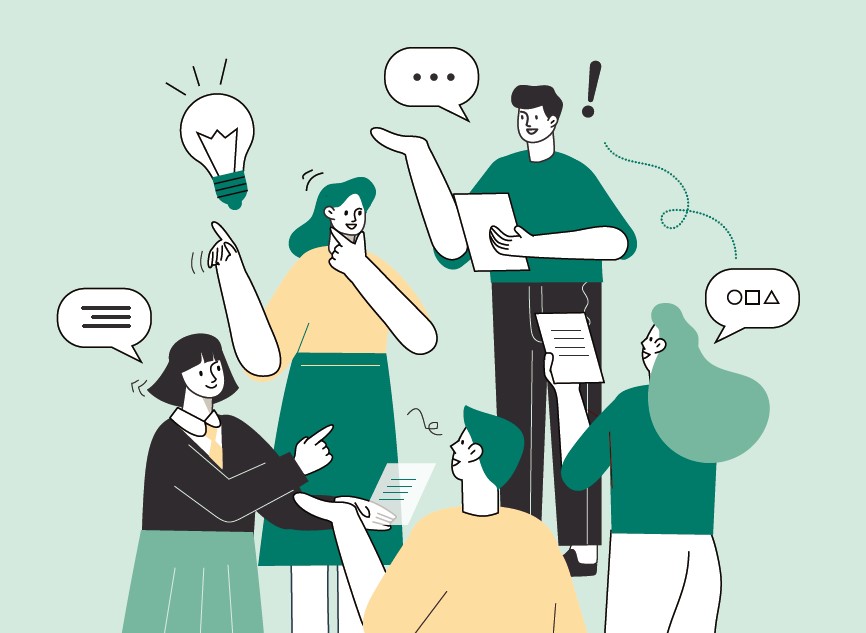
The term “political fandom” may seem unfamiliar to some Kingos. However, it is undeniable that political fandoms have an increasing influence on Korean politics. Since it seems that political fandoms are here to stay, let us hope that they will be able to overcome their shortcomings and bring change to the political landscape.
